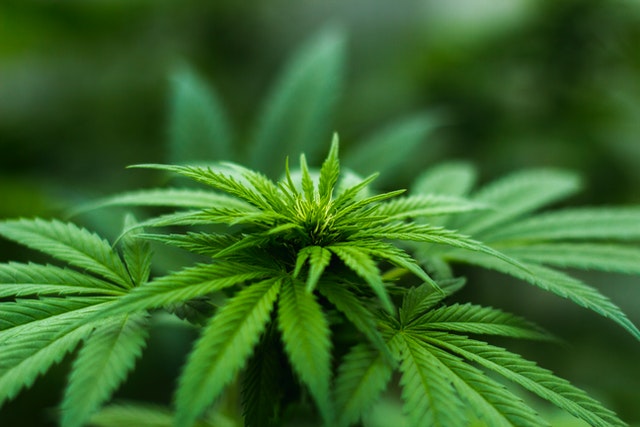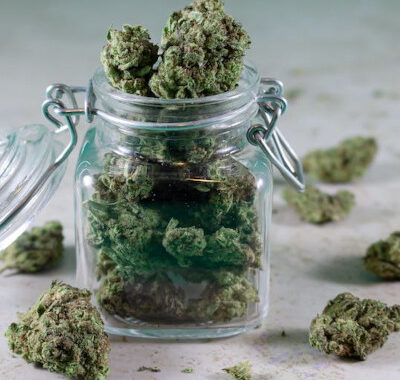
How Dangerous are Marijuana and Other Opiates When Used to Deal With Insomnia?
As you may already know, it is extremely common for people to use marijuana and opiates, whether it may be for medical or recreational purposes. But is it possible that these drugs may help treat insomnia, or do they cause more harm than good?
Table of Contents:
Marijuana may help treat certain conditions
It may be important to note that marijuana may help some people, but perhaps not all. For example, marijuana may help people with specific conditions such as PTSD or those who suffer from long-term pain. In addition, users may use marijuana to help with symptoms associated with anxiety and insomnia.
How does marijuana exactly help with sleep?
It is believed that the relationship between cannabinoids and the brain’s signals has much to do with how sleep is promoted. In other words, the components of marijuana do promote sleep-inducing effects on the brain. However, while THC is technically a sedative, it may impact some users with a stimulating effect. Because the THC may cause alertness, this may cause you to have more trouble falling asleep or not feeling sleepy.

How marijuana affects your sleep quality
It’s one thing to have marijuana help you fall asleep faster, but what about giving you restful sleep? It turns out that marijuana can also have an impact on your stages of sleep. Using marijuana for a short period can make you stay in a deeper sleep for a longer time. In contrast, prolonged marijuana use decreases the amount of time that you spend in REM sleep. Decreased REM sleep may benefit those with PTSD as symptoms may include nightmares.
Which type of marijuana is most effective for sleep?
Three different types of marijuana are commonly used. There is Sativa, which usually gives you more cerebral effects, and it can be used to give you more energy. An Indica type tends to help you feel more relaxed and may also cause a sedative effect. Then there is a hybrid type, which gives you a combination of a cerebral high and body relaxation. Usually, an Indica type helps the most with sleep.
What are the risks I need to know about marijuana regarding sleep?
There is a downside to using marijuana for a long period. As previously stated, occasional use of marijuana may be beneficial in decreasing the amount of time it takes to fall asleep. On the other hand, long-term use of marijuana can lose its effect on helping you fall asleep once tolerance is built. For this reason, experts strongly discourage using marijuana as a sleep aid. These are the consequences of long-term marijuana use.
- Constantly waking up
- Decreased time in deep sleep
- Decreased sleep overall
- Taking more time to fall asleep
What are other risks that may affect my sleep from marijuana?
It has been found that higher doses of THC can affect how you feel the following day after using marijuana. For example, you may not remember things clearly or feel fatigued. Studies also found that marijuana may cause less gray matter in your brain.
The controversy about opiates used to treat insomnia
Similar to marijuana, opiates can treat insomnia to a certain degree. Experts haven’t concluded whether or not opiates are effective in treating insomnia. However, there is more evidence on how opiates negatively affect your sleep.
Understanding how opiates negatively affect sleep
It has been reported that those who use opiates tend to have poorer sleep quality. This causes the risk of not being able to recover from addiction as sleep is very important. The most common sleep issues caused by opiate use include waking up a lot from your sleep, unrestful sleep in general, or in some cases, can cause you to develop sleep disorders.
What types of sleep disorders may be caused by opiate use?
You may be at risk of getting a few different sleep disorders if you use opiates. The type of sleep disorder may vary depending on the present symptoms.
Opiates may cause parasomnia
Opiates can impact your sleep patterns by causing you to develop strange behaviors. For example, opiate use may induce you to sleepwalk, eat or talk while asleep. This can potentially become dangerous as you could be at risk for falls.
Opiates may induce insomnia
Opiates may cause you to have trouble falling and staying asleep. They may also cause you to not feel as rested from normal sleep.
Opiates may lead to daytime sleepiness
Opiates may cause you to feel extremely tired during the day. Though it may come from having trouble with getting good sleep quality, it isn’t always known why daytime sleepiness happens. This can become problematic because it will likely affect other areas of your life, such as relationships, school, and work. Therefore it is more dangerous if you fall asleep while driving.
Opiates may also cause mixed symptoms
In some cases, opiate users risk developing a mix of symptoms associated with the abovementioned disorders. For instance, an opiate user may struggle with daytime sleepiness while also sleepwalking at night.
Are there any other risks from opiate use?
It is also important to understand that opiate use can interact with any other medication an opiate user may be taking, making sleep patterns worse. In addition, an opiate user could also possibly develop sleep apnea. This condition causes a person to stop and start breathing for a brief time while sleeping.
The vicious cycle of opiate use related to sleep
Unfortunately, it is extremely hard to break from opiate use as users may use them to help them relax when in fact, it does the opposite effect. This can trick the person into thinking they need to take more opiates to provide better sleep.
What are the solutions to treat insomnia?
Luckily, there are healthier options to treat insomnia. You may also want to consult with a doctor.
Getting on sleep medications may help
It may be a good idea to talk to a doctor and see if you can be prescribed medication that helps you sleep better. There are a variety of different types of medications, such as benzodiazepine sedatives, that you may want to bring up.
Try exercising more
Exercise keeps your body functioning well and promotes healthy energy and restful sleep. It is best to aim to get at least 20 minutes of exercise up to 4 times throughout the week.
Try building healthy sleep routines
Making sure that your bedroom is noise-free and dark will help you sleep. It is also wise if you build a habit of going to bed and waking up around the same time. Additionally, try to avoid eating before bedtime.
While there are conflicting arguments about whether or not marijuana and opiates can be used to treat insomnia, more evidence points out that these drugs can become problematic and even dangerous. In conclusion, it is better to avoid using these substances altogether.
Elite Home Detox Can Help You Stop Smoking Marijuana
If you want to stop smoking marijuana, reach out to Elite Home Detox. We are a licensed, mobile provider of addiction-focused healthcare. Our experts work with patients to develop a withdrawal management plan centered around their unique needs. We offer full support services, including:
- In-Home Detox: Healthcare professionals visit your home to monitor progress and administer treatment for detox symptoms
- Sober Companionship: Sober companions are personal coaches who are trained to help you adjust to a drug-free lifestyle
- Psychiatric Evaluation: Get treatment for any underlying mental health disorder to help achieve better health and avoid relapse.
- Case Management: Get matched with support services based on your individual needs.
- Medication Assisted Treatment: Our team can prescribe medications to relieve detox symptoms and cravings to make you as comfortable as possible
- Interventions: Our Intervention Specialists work with a patient’s support network to develop a supportive message to help motivate an addicted person to get help
- NAD IV Therapy: NAD IV therapy can help the body heal faster and reduce withdrawal symptoms
- Concierge Medical Services: We offer addiction-focused healthcare treatment to help address the short- and long-term health concerns that may appear during recovery.
Our aftercare monthly memberships include a number of support services for a monthly fee. We are proud to offer a discreet, patient-focused rehabilitation practice: contact Elite Home Detox today!


